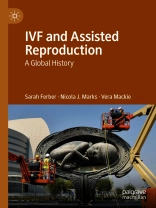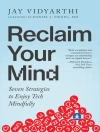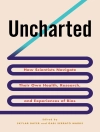This is the first transnational history of IVF and assisted reproduction. It is a key text for scholars and students in social science, history, science and technology studies (STS), cultural studies, and gender and sexuality studies, and a resource for journalists, policymakers, and anyone interested in assisted reproduction. IVF was seen as revolutionary in 1978 when the first two IVF babies were born, in the UK and India. Assisted reproduction has now contributed to the birth of around ten million people. The book traces the work of IVF teams as they developed new techniques and laid the foundations of a multi-billion-dollar industry. It analyses the changing definitions and experience of infertility, the markets for eggs and children through surrogacy, cross-border reproductive treatment, and the impact of regulation. Using interviews with leading IVF figures, archives, media reports, and the latest science, it is a vital addition to the field of reproduction studies.
‘This pathbreaking account of the global forces behind the rapid rise of the fertility industry is the first to offer such a truly comprehensive overview of this hugely important topic.’
— Sarah Franklin , Chair of Sociology, University of Cambridge
‘In this compelling overview of one of the most significant technological and social interventions ever developed, the cultural and scientific imaginaries of assisted reproduction meet the obdurate histories of laboratory experiments, biological materials, and personal quests. It is an indispensable read for anyone interested in IVF and assisted reproduction.’
— Andrea Whittaker , Professor of Anthropology, Monash University
Tabela de Conteúdo
1. IVF and Assisted Reproduction: Global Visions, Local Stories.- 2. Towards the Two 1978 Births.- 3. The Foundations of Global Assisted Reproduction.- 4. Regulation and Risk.- 5. Oocytes, Surrogacy and Cross-Border Reproduction.- 6. Testing Boundaries, Finding Limits.- 7. Thresholds of the Future: New Directions in Assisted Reproduction.
Sobre o autor
Sarah Ferber is Professor of History at the University of Wollongong, Australia. Her books include: Bioethics in Historical Perspective (2013), and the co-edited The Reproductive Industry: Intimate Experiences and Global Processes (2019), and The Body Divided: Human Beings and Human ‘Material’ in Modern Medical History (2011).
Nicola J. Marks is Senior Lecturer at the University of Wollongong. She researches the social dimensions of science and medicine, including stem cell research and IVF, and is co-editor of The Reproductive Industry: Intimate Experiences and Global Processes (2019). Vera Mackie is Senior Professor of Asian and International Studies at the University of Wollongong. She is co-author of
Remembering Women’s Activism (2019), co-editor of
The Reproductive Industry: Intimate Experiences and Global Processes (2019), and
The Social Sciences in the Asian Century (2015).




